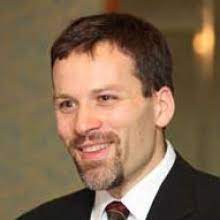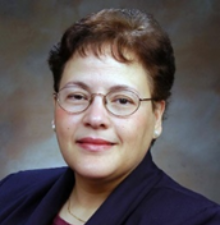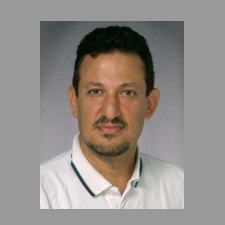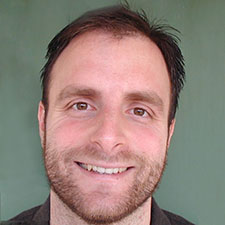Proceedings of the 9th World Congress
on Electrical Engineering and Computer Systems and Science (EECSS 2023)
August 03 - 05, 2023 | Brunel University, London, United Kingdom
The keynote information for the 9th World Congress on Electrical Engineering and Computer Systems and Science (EECSS 2023) is as follows:
Plenary Speaker

Dr. Brian Amsden
Queen's University, Canada
ICBES 2023 Plenary Speaker
Keynote Speakers

Dr. Peter Driessen
University of Victoria, Canada
MHCI 2023 Keynote Speaker

Dr. Andrew G. Kirk
McGill University, Canada
ICBES 2023 Keynote Speaker

Dr. Dalila B. Megherbi
University of Massachusetts Lowell, USA
MVML 2023 Keynote Speaker

Dr. Omar M. Ramahi
University of Waterloo, Canada
EEE 2023 Keynote Speaker

Dr. George Tzanetakis
University of Victoria, Canada
MHCI 2023 Keynote Speaker
ICBES 2023 Plenary Speaker

Dr. Brian Amsden
Queen's University, Canada
ICBES 2023 Plenary Speaker
Brian Amsden is the Donald and Joan McGeachy Chair in Biomedical Engineering at Queen’s University. Following the completion of his PhD (Queen’s 1996), he worked for Angiotech Pharmaceuticals in Vancouver as a Research Associate, leading projects involving the formulation of paclitaxel for localized delivery to treat restenosis, psoriasis, and rheumatoid arthritis. He left Angiotech to join the Faculty of Pharmacy at the University of Alberta in 1997 and is currently a Professor in the Department of Chemical Engineering at Queen’s University where he has been since July 2000.
Topic of Plenary:
Aliphatic Polycarbonate-Based Biomaterials: From Elastic Hydrogels to Viscous Liquids
MHCI 2023 Keynote Speaker

Dr. Peter Driessen
University of Victoria, Canada
MHCI 2023 Plenary Speaker
Peter Driessen is Professor of Electrical and Computer Engineering at the University of Victoria. He received his PhD from the University of British Columbia, Canada. He worked for 5 years in various companies in Vancouver Canada designing modems for data communications. He then joined the University of Victoria, Canada where he is now Professor in Electrical and Computer Engineering, with a cross appointment in Music. He spent two years plus 8 summers at AT&T Bell Laboratories, New Jersey USA working on wireless communications systems. He was at Massey University Wellington as visiting Professor of Multimedia Systems Engineering for 5 years. He collaborated with Andrew Schloss and George Tzanetakis on a research program designing new musical instruments funded by three Canadian granting councils and a combined bachelor’s degree program in Music and Computer Science. He was papers co-chair for the International Computer Music Conference held in Cuba. www.driessen.ca
Topic of Plenary:
Intelligent Musical Instruments: Challenges for the Composer/Performer
MHCI 2023 Keynote Speaker

Dr. Andrew G. Kirk
McGill University, Canada
ICBES 2023 Keynote Speaker
Andrew Kirk is a Professor of Electrical and Computer Engineering at McGill University where he leads research into the development of biomedical sensors and point-of-care diagnostic systems. He received the Ph.D. degree in Physics from King’s College (London) and was subsequently awarded research fellowships to undertake postdoctoral research at the University of Tokyo, Japan and the Vrije Universiteit, Brussels, Belgium before moving to Montreal. He is author of more than 200 journal articles and conference presentations and holds 4 patents. In 2015 he was awarded the William and Rhea Seath Award for Engineering Innovation by McGill’s Faculty of Engineering for his work on new tools for DNA amplification using nanophotonic techniques. The intellectual property that he has developed has now been licensed commercially to develop a high-speed diagnostic test for the SARS-Cov-2 virus. He is also a committed teacher, having twice been awarded the Principal’s Prize for Excellence in Teaching at McGill. He has served as Chair of the Department of Electrical and Computer Engineering and Director of the McGill Institute for Advanced Materials (MIAM) and has previously served as Interim Dean of Engineering and Associate Dean for Research and Graduate Education in the Faculty of Engineering.
Topic of keynote:
Rapid DNA Amplification: Recent Approaches to Accelerating Nucleic Acid Diagnostic Methods
Keynote Abstract
CIST 2023 Keynote Speaker

Dr. Dalila B. Megherbi
University of Massachusetts Lowell, USA
MVML 2023 Keynote Speaker
Dalila B. Megherbi obtained her Diplome Ingenieur d’Etat in Computer Engineering from the Ecole Nationale Polytechnique with the highest honors, received the Sc.M in Computer Engineering, the Sc.M in Applied Mathematics, and the Ph.D. in Electrical and Computer Engineering from Brown University. After working in the industry, including in the defense industry, she joined academia and joined the Department of Electrical and Computer Engineering at the University of Massachusetts Lowell, where she is currently a tenured faculty and the Director of the Research Center for Computer Machine/Human Intelligence Networking and Distributed Systems (CMINDS) that she founded, (https://www.uml.edu/Research/CMINDS/). Her research is internationally recognized. She holds more than >140 refereed peer-reviewed publication articles, including in the IEEE and the prestigious Nature Biotechnology. She holds US patent. She has been the recipient of numerous research grants and contracts, as the primary lead principal investigator, from several federal agencies and the industry, including DOD AFRL/WPAB, NSF, US FDA, NIH, Raytheon Air Missile Defense Systems, Xilinx Inc., Structural Dynamics Research Corporation, SUN Microsystems/Oracle, Altera Inc., and Sky Computers Inc. She graduated more than 42 UML graduate Ph.D. and MS thesis option students. She serves as associate editor and member of the editorial boards and reviewer for a dozen of journals, including IEEE transactions. She was invited to serve as a General Chair for the 2018 IEEE CIVEMSA International Conference. She has been invited to organize/TPC/session chair and to speak (keynote speaker) at several national and international conferences. She has been invited to serve on national and international peer review boards, including NSF, NIH, NASA, National Science Foundation of Ireland, and Czech Science Foundation Research. She has been the recipient of numerous research and teaching awards, including the recipient of the Best Paper Award of all-conference tracks at the IEEE International Conference on Homeland Security, the recipient of the IEEE Control Systems Society CDC Best Paper Finalist Award, the recipient of the Best Paper Award at the IEEE international conference ROMA, the recipient of the Best Paper Award at the IEEE international conference CIVEMSA, the recipient of the Top Professor Award for Outstanding Academic Integrity Leadership and Service to the students, the recipient of several university of Massachusetts Lowell Outstanding Teaching Excellence Awards, the recipient of several UML Annual Research and Scholarship Recognition Awards, in recognition of faculty with an extensive scholarship during that year. She has been a member of an international project consortium led by the US FDA. She was invited, interviewed, and quoted in the New Times for her expertise in big data facial recognition for homeland security applications. Major national and international news agencies contacted her for her work and expertise in big data and facial recognition for homeland security. She was invited, interviewed, and featured by the Science News Radio Network for her expertise in Artificial Intelligence and Big Data technologies applied to Weapons of Mass Destruction. She is an invited member of several honorary Societies, including Sigma Xi, Brown Chapter, New York Academy of Science, and the American Society for the Advancement of Science. Her primary research interests are Computational Machine Intelligence, Machine and Deep Learning, Digital Image processing & Computer Vision, “Big data” analytics, knowledge extraction/representation, and adaptive learning systems in distributed computing systems and networks, with applications to homeland security and the life sciences (high throughput meta-genomics). Her main research goal is understanding and building sensor-based machines that can be made to exhibit intelligence. The idea is to build intelligent machines/sensors and to understand certain aspects of human and animal biological intelligence.
Topic of Keynote:
The importance of Integration of AI, Brain Neuro-Imaging Machine Vision, Peripheral Blood Gene Expressions, and Genomics for Better Prognosis and Diagnosis Predictions of Alzheimer's Disease
EEE 2023 Keynote Speaker

Dr. Omar M. Ramahi
University of Waterloo, Canada
EEE 2023 Keynote Speaker
Omar M. Ramahi received the B.S. degree in mathematics and electrical and computer engineering (Highest Honors) from Oregon State University, Corvallis, OR, USA, and the Ph.D. degree in electrical and computer engineering from the University of Illinois at UrbanaChampaign, Champaign, IL, USA. From 1993 to 2000, he was with Digital Equipment Corporation (currently, HP), where he was a Member of Alpha Server Product Development Group. In 2000, he joined the Faculty of the James Clark School of Engineering, University of Maryland, College Park, MD, USA, as an Assistant Professor and then as a tenured Associate Professor. He was also a Faculty Member of the CALCE Electronic Products and Systems Center, University of Maryland and the director of the Electromagnetic Interference and Compatibility Laboratory. He is currently a Professor with the Electrical and Computer Engineering Department, University of Waterloo, Waterloo, ON, Canada. He is also the director of the Advanced Concepts Laboratory. He has authored and coauthored more than 450 journal and conference technical papers on topics related to the electromagnetic phenomena and computational methods. He is a co-author of the book EMI/EMC Computational Modelin Handbook. He served as Associate Editor for the IEEE Transactions on Advanced Packaging and Guest Editor of Sensors. He is the winner of the 2004 University of Maryland Pi Tau Sigma Purple Cam Shaft Award. He won the Excellent Paper Award in the 2004 International Symposium on Electromagnetic Compatibility, Sendai, Japan, and the 2010 University of Waterloo Award for Excellence in Graduate Supervision. In 2012, he was awarded the IEEE Electromagnetic Compatibility Society Technical Achievement Award. Professor Ramahi is a co-founder of Applied Electromagnetic Technologies, USA, and Wave Intelligence Inc., Canada.
Topic of Plenary:
Space-Based Solar Power: From the Realm of Science Fiction to Reality
MHCI 2023 Keynote Speaker

Dr. George Tzanetakis
University of Victoria, Canada
MHCI 2023 Plenary Speaker
George Tzanetakis is a Professor in the Department of Computer Science with cross-listed appointments in ECE and Music at the University of Victoria, Canada. He was a Canada Research Chair (Tier II) in the Computer Analysis and Audio and Music between 2010 and 2020 and received the Craigdaroch research award in artistic expression at the University of Victoria in 2012. In 2011 he was Visiting Faculty at Google Research. He received his PhD in Computer Science at Princeton University in 2002 and was a Post-Doctoral fellow at Carnegie Mellon University in 2002-2003. His research spans all stages of audio content analysis such as feature extraction, segmentation, classification with specific emphasis on music information retrieval. His pioneering work on musical genre classification received a IEEE signal processing society young author award and is frequently cited. More recently he has been exploring new interfaces for musical expression, music robotics, computational ethnomusicology, and computer-assisted music instrument tutoring. These interdisciplinary activities combine ideas from signal processing, perception, machine learning, sensors, actuators and human-computer interaction with the connecting theme of making computers better understand music to create more effective interactions with musicians and listeners (http://www.cs.uvic.ca/~gtzan).
Topic of Keynote:
Blending the Physical and the Virtual: Multi-Modal Human-Computer Interaction for Music